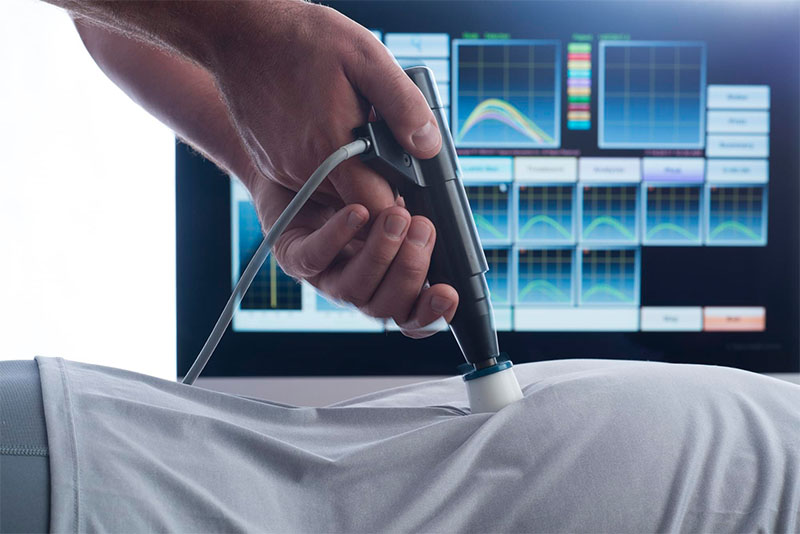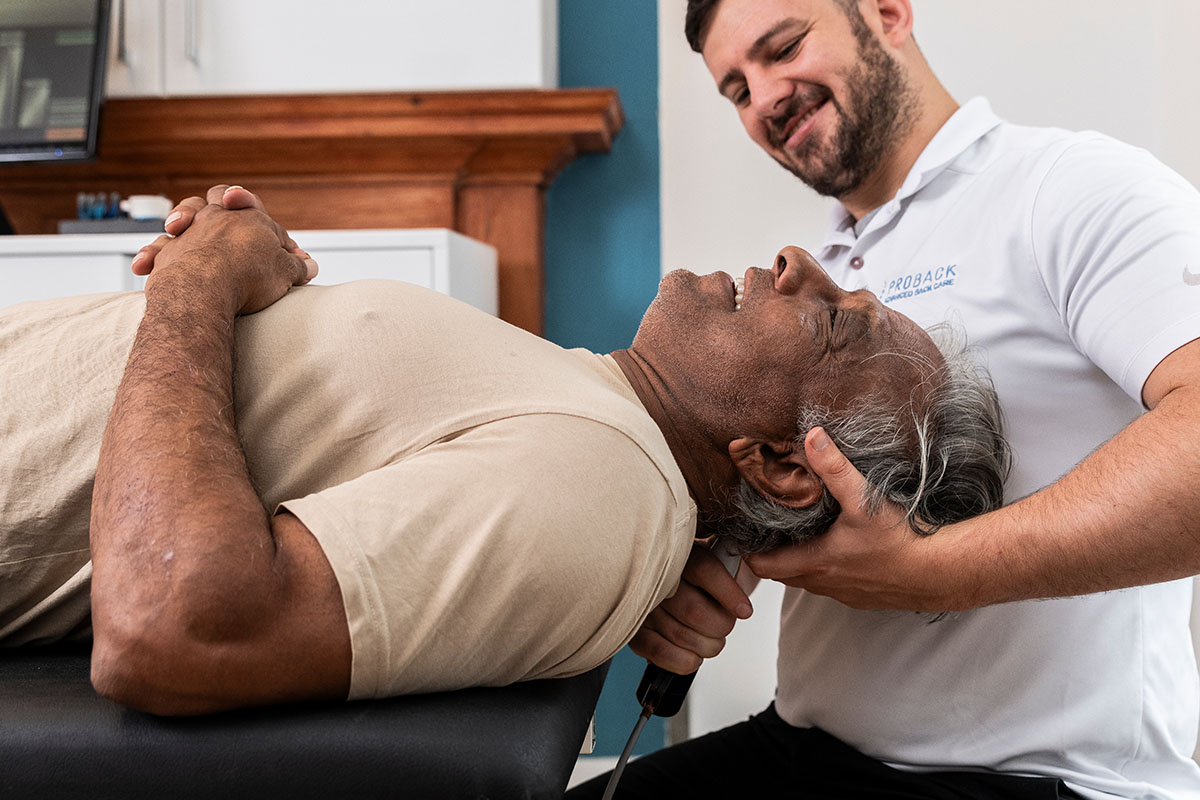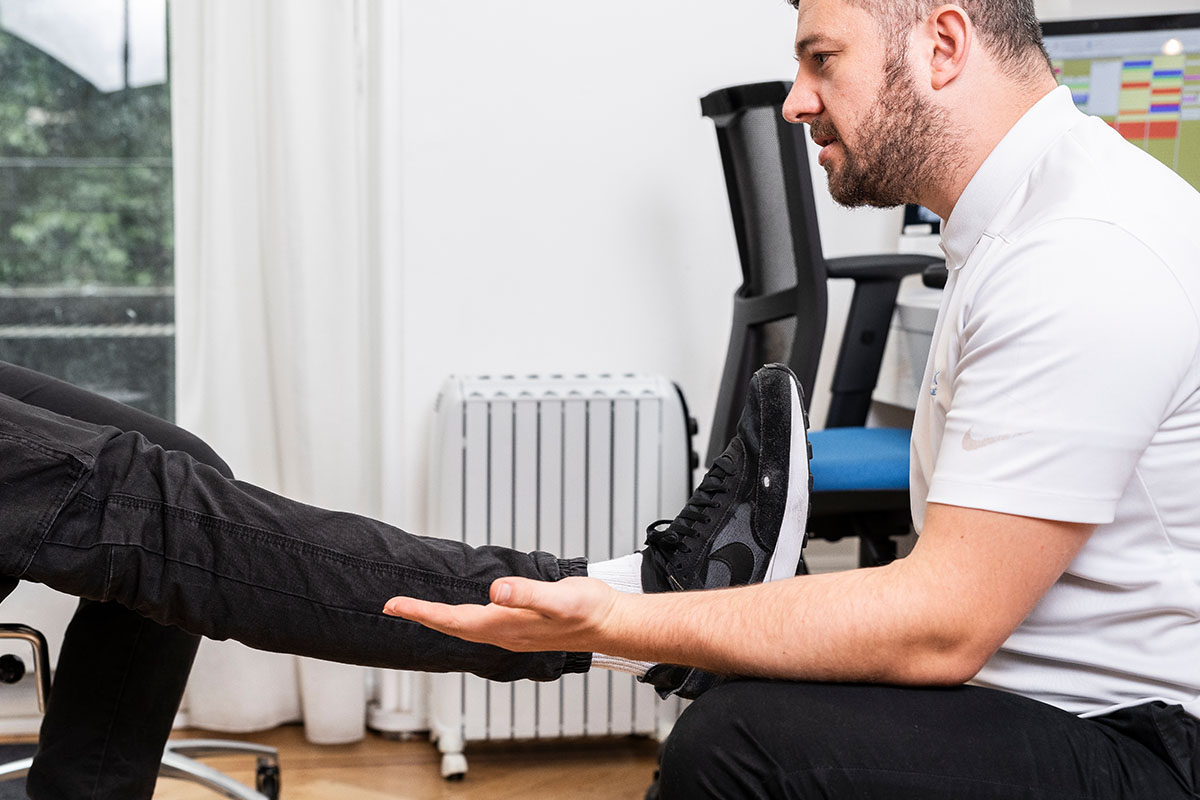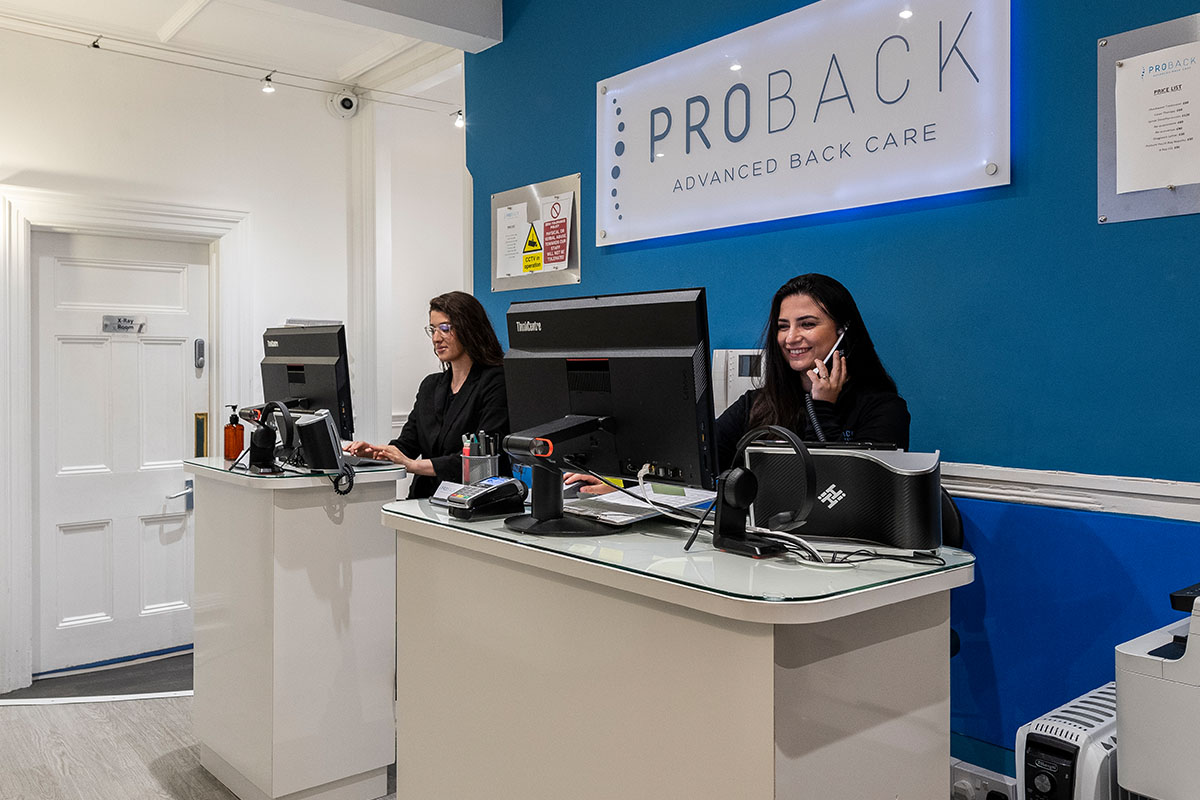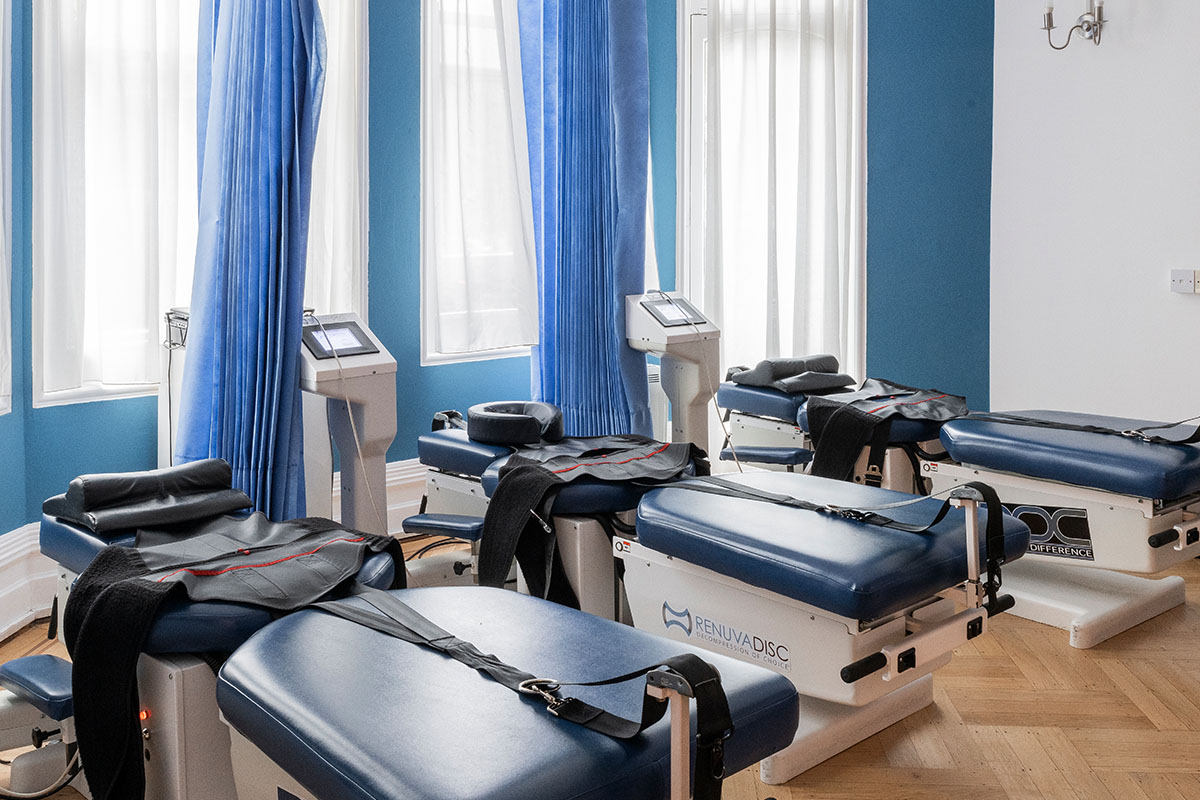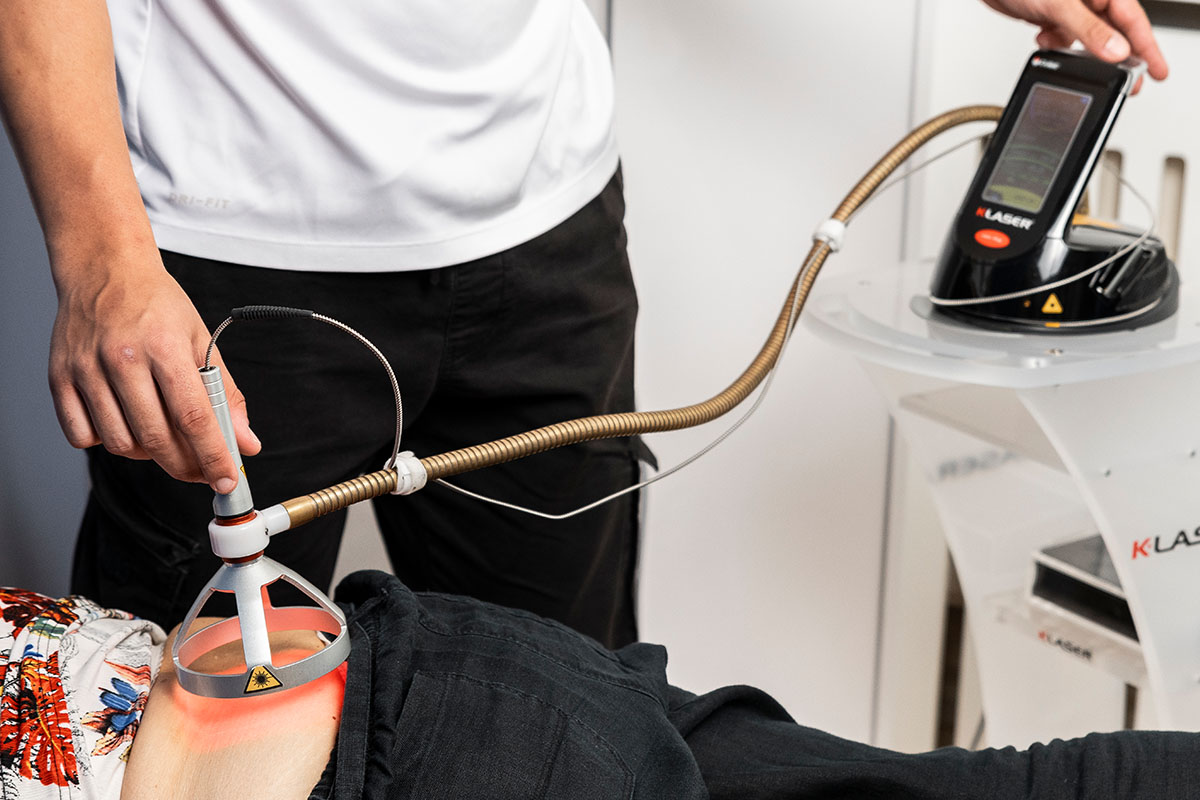
Degenerative Disc Disease Treatment
Up To 90% Success Rate
Specialist Degenerative Disc Disease Treatment London
Over time, changes can happen to the discs in your spine that can lead to degeneration. Trauma, poor posture and movement, as well as general wear and tear can all cause the discs to degenerate. With degenerative disc disease (DDD) the discs begin to narrow from loss of water content. The fibres of the disc can tear, allowing disc fluid to bulge or protrude. As the discs lose their ability to absorb shock, the spinal vertebrae will then create more bony projections, called osteophytes.
This condition can happen anywhere along the spine, but is most common in the neck (cervical region) or lower back (lumbar region). Depending on where it is, the disc degeneration can cause nerves to become compressed. This can cause pain, numbness and tingling in the back, neck, or that can travel into the arms or legs. In some cases damaged discs can weaken muscles and affect your balance and ability to walk. Degenerative Disc Disease can also lead to the development of other conditions, such as Osteoarthritis, Spinal Stenosis or Spondylolisthesis.
Symptoms of Degenerative Disc Disease
The severity of DDD can vary hugely person to person. Here are the most common symptoms:
- Back or Neck Pain
- General Stiffness
- Numbness, tingling or weakness into the arms or legs
- Sciatica
- Pain caused by a certain activity: for example bending or lifting
- If Degenerative Disc Disease affects the lower back, sitting or standing for a long time may make the pain worse. However activities like swimming or gentle exercise may help to ease the pain
Our Degenerative Disc Disease Treatment
Through the right treatment and rehabilitation, good results can be achieved depending on how severe the degeneration is. A combination of shockwave and spinal decompression therapies can be highly effective. If the degeneration is severe or there is slow healing in the area, laser therapy may reduce sensitivity and accelerate healing.
- Spinal Decompression therapy uses a low percentage of your body weight to gently stretch the spine, relieving pressure on the disc and allow healing to take place.
- By reducing the pressure on the spine, the discs receive hydration and vital nutrients allowing them to heal the cellular damage.
- Shockwave therapy helps overall healing in the body by increasing the amount of blood flow into the body’s tissues.
- Shockwave can also improve the movement and flexibility in the spine, which can relieve any stiffness and misalignments in the body.
Book A Consultation For Only £110
Use the form below to book a consultation.
Consultation includes examination, x-ray (if required) and results.
We typically reply within 60 minutes during opening hours.
What to Expect From Degenerative Disc Disease Treatment at Proback Clinic
When you visit us in Victoria, London, your care plan is tailored to your specific condition and recovery goals. The process typically includes:
Comprehensive consultation– full medical history, spinal assessment, and imaging if required.
Accurate diagnosis– identifying whether your symptoms are caused by degenerative disc disease, disc dehydration, or related spinal conditions.
Targeted treatment– options may include spinal decompression therapy London, chiropractic adjustments, Prolozone injections, K-Laser therapy, and shockwave therapy for chronic disc pain.
Progressive improvement– many patients report reduced stiffness, better mobility, and relief from nerve compression symptoms within weeks.
Because our treatments are non-invasive, you can usually continue daily activities straight after your session.
Who Benefits Most From Degenerative Disc Disease Rehabilitation London?
Our treatments are suitable for patients struggling with:
- Chronic back or neck pain linked to disc degeneration
- Tingling, numbness, or weakness due to compressed nerves
- Stiffness or reduced flexibility in the spine
- Worsening discomfort after sitting, standing, or physical strain
- Limited results from physiotherapy, painkillers, or steroid injections
- Ongoing flare-ups despite standard care
For many patients, degenerative disc disease rehabilitation London has been the key to long-term relief after years of frustration with conventional treatments.
Why Patients Choose Proback Clinic for Degenerative Disc Disease London
When searching for “degenerative disc disease treatment near me” or “disc degeneration therapy London”, patients choose Proback Clinic because we provide:
- Same-day and next-day appointments in London Victoria
- Evening and weekend availability
- Over 15 years’ experience treating disc degeneration and complex spinal conditions
- A multi-disciplinary approach combining physiotherapy, chiropractic care, and regenerative therapies
- A patient-first philosophy focused on avoiding unnecessary surgery
Degenerative Disc Disease Treatment vs Other Options in London
Patients often compare care for degenerative disc disease with more traditional approaches:
- Surgery – may be an option in severe cases, but involves high risks and long recovery.
- Medication – can mask pain temporarily, but doesn’t repair disc damage.
- Physiotherapy alone – improves strength and posture but may not halt progression of disc degeneration.
- Steroid injections – reduce inflammation for a limited time but do not promote healing.
At Proback Clinic, our integrated approach combines spinal decompression London with advanced regenerative therapies such as Prolozone and K-Laser, addressing both pain relief and long-term disc health.
Degenerative Disc Disease Treatment Near Me – Proback Clinic, Victoria London
If you’ve been searching for:
- Degenerative disc disease treatment London
- Disc degeneration rehabilitation London
- Degenerative disc physiotherapy London
- Non-surgical treatment for disc disease
- Spinal decompression London
- Chronic back pain treatment London
- Advanced therapies for disc degeneration
- Fix back pain London
…then Proback Clinic in London Victoria provides everything under one roof. With an expert team and a full range of advanced non-surgical therapies, we’re here to help you restore spinal function and long-term mobility.
FAQs
Degenerative disc disease is a process of spinal dysfunction that can occur over time. It can involve varying degrees of dehydration and narrowing of vertebral discs, arthritis of the vertebral facet joints, and increased bone formation (called osteophytes). Degeneration is typically a slow process and therefore will often be, but not always, more severe in older adults.
Degeneration can occur as a result of many reasons for instance: car accidents, falls, or other physical trauma, poor posture and movement, or wear and tear from repetitive activities like sports. These can all place increased stress and force on spinal discs resulting in a breakdown of the disc’s structure. Our discs act as padding for the rest of the spine, any degeneration will make the disc less shock-absorbent, and therefore the spine becomes weaker. When this happens, there is reduced movement between each vertebra and this can cause stiffness in movement.
This depends on how much the spinal degeneration has progressed. However, the outlook is normally good and patients can benefit from a combination of our shockwave, decompression therapies, and/or laser therapies. Therapeutic choices are based upon completion of the examination process, during which we determine the severity of the degeneration and other contributing or complicating factors.
If degeneration is present it may worsen over time if left untreated. As the vertebral discs dehydrate and bulge it can lead to spinal or foraminal stenosis (affecting the spinal cord or nerve roots). These conditions can cause worsening pain, weakness, numbness, and tingling into the arms and legs. This may affect your ability to walk, stand, pick up objects or perform normally daily activities like getting dressed.
According to current medical research and understanding, spinal degeneration can not be cured. However, our forms of treatment can help with the pain it causes. Our therapies are also directed towards improving the alignment and strength of your spine, in an effort to slow the progress of degeneration.
Physical activity may be beneficial in improving your spinal health and condition. However, we typically only introduce exercises after an initial course of treatment has been completed. Our therapies help improve the function of the spine, such as movement, flexibility, and strength. Once your spine has stabilised and the pain has reduced, we then recommend beginning physical activity. The exercises we introduce are specific to improving your physical condition and continued stabilisation of your spine.
Award-Winning Treatments
Gentle Non-Surgical Chiropractic Therapy
Inside Proback
5 Minutes From London Victoria Station
Accreditations



How To Find Us
Flat 4, Evelyn Mansions,
Carlisle Place, Westminster,
London, SW1P 1NH
Opening Times
Weekdays 8.30am - 8pm
Saturday 9am - 3pm

020 7976 6648





